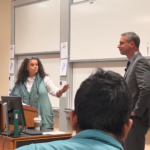Arizona Education Credits Survive
WASHINGTON, DC — The United States Supreme Court has reversed a federal appeals court decision striking down Arizona’s tax credit for contributions to organizations providing private school tuition assistance, ruling that taxpayers challenging the law do not have the authority to maintain the lawsuit. In a 5-4 ruling in Arizona Christian School Tuition Organization v. Winn, the Court held that the plaintiffs in the case do not have legal standing to challenge the law under the Establishment Clause because they cannot show that they sustained any concrete injury as a result of Arizona’s decision to grant a tax credit to persons who donate private funds to Student Tuition Organizations (STOs). The Rutherford Institute filed an amicus brief in the case arguing in support of Arizona’s law, arguing that the lower court’s ruling was hostile to religion and would result in individuals being stigmatized because of their religious beliefs. A copy of the Institute’s brief is available here.
Nisha N. Mohammed is the press contact for the Rutherford Institute, a nonprofit legal and educational civil liberties organization which provides legal assistance at no charge to individuals whose constitutional rights have been threatened or violated.




